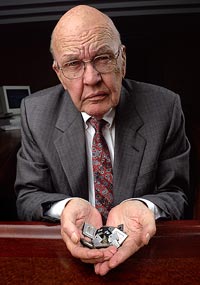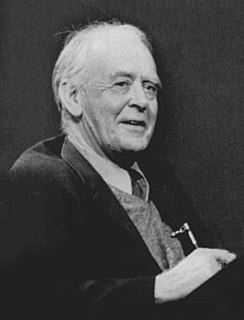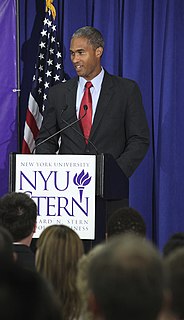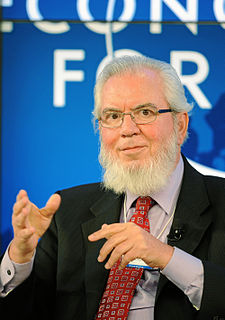A Quote by Leila Janah
I think people are hungry for new ideas and leadership in the world of poverty alleviation. Most development programs are started and led by people with Ph.Ds in economics or policy. Samasource is part of a cadre of younger organizations headed by entrepreneurs from non-traditional backgrounds.
Related Quotes
Most Americans living below the official poverty line own a car or truck - and government entitlement programs seldom provide cars and trucks. Most people living below the official poverty line also have air conditioning, color television, and a microwave oven - and these too are not usually handed out by government entitlement programs.
Cell phones and other electronic devices are by no means unheard of in low-income neighborhoods, where children would supposedly go hungry if there were no school-lunch programs. In reality, low-income people are overweight more often than other Americans.
Political systems must love poverty-they produce so much of it. Poor people make easier targets for a demagogue. No Mao or even Jiang Zemin is likely to arise on the New York Stock Exchange floor. And politicians in democracies benefit from destitution, too. The US has had a broad range of poverty programs for 30 years. Those programs have failed. Millions of people are still poor. And those people vote for politicians who favor keeping the poverty programs in place. There's a conspiracy theory in there somewhere.
Organizations have to come to grips with the fact that tests of adaptive capability aren't always pleasant. Learning can be a powerful emotional event, and organizations have to be cognizant of that. They must understand that those who complete high-quality executive education programs are going to see the organization with fresh eyes after they return. Those who re-enter the workplace filled with new enthusiasm and new ideas often find a chilly response on the part of their supervisors.
I think the team that successfully puts together an economic and social policy framework for global full employment in decent working conditions based on local development, that would command the support of all stakeholders and all international organizations concerned, should be awarded the [Nobel] prize. I am sure they would get it not just for economics, but also for peace in the world.
Samasource creates jobs in regions where more traditional forms of employment in low-income economies, such as manufacturing, are difficult to scale because of poor infrastructure. In a village in Rukka, India, for example, our small data entry partner employs over 60 people doing various types of Internet research for Samasource.
Change is difficult and it takes time. It is hard for people to change their own behavior, much less that of others. Change programs normally address attitudes, ideas, and rewards. But the behaviors of people in organizations are also strongly shaped by habits, routines, and social norms. Real change requires new power relationships, new work routines and new habits, not just intent.
Most people think leadership is about being in charge. Most people think leadership is about having all the answers and being the most intelligent person or the most qualified person in the room. The irony is that it is the complete opposite. Leadership is about empowering others to achieve things they did not think possible. Leadership is about pointing in the direction, articulating a vision of the world that does not yet exist. Then asking help from others to insure that vision happens.
































